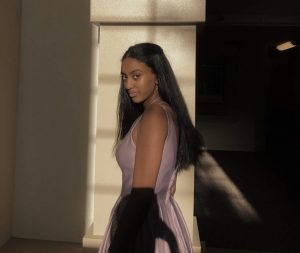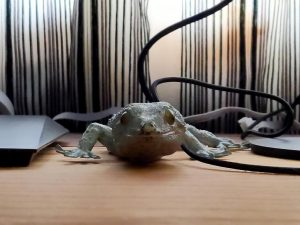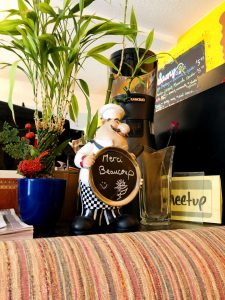Changing the stereotype
Harpur Barahona ’20 discusses overcoming many hardships in her life being an immigrant and dealing with being a trans woman.
Imagine you’ve always grown up being told you’re supposed to be something you know you’re not. This is something that has been a regular occurrence for Harpur Barahona ’20, who has had to break past many barriers and stereotypes throughout her life.
Barahona is a Latina transgender woman who has been out for about three years now. She came out as trans in eighth grade, while she was going to Southeast Junior High. “My parents didn’t really believe me,” she said. “My sister had recently come out, so they thought I was copying her. Most of my friends were really accepting, but some friends of friends would say some really offensive things.”
Barahona wants people to be more informed about her culture, gender identity and sexuality so they don’t judge based on looks or other stereotypes. “So many people would ask me, ‘oh, are you Mexican?’ Just because I speak Spanish, doesn’t mean I’m from Mexico, like, I’m from Honduras,” Barahona said.
Barahona has always had problems with the way San Pedro Sula, Honduras is portrayed, since she was born in what is often referred to as “The Murder Capital of the World.”. She’s upset that it is portrayed as only a dangerous place; she knows it is dangerous, but she also knows another side. “Some of the people I knew there were really friendly. If I walked to my neighbor’s house, they’d invite me in to come help make something or just to hang out with their kids. Sure, Honduras is definitely a dangerous and corrupt country, but it’s still my country and I love it.”
Barahona has had many people assume things about her based on stereotypes, and believes that if people can become more informed and not have incorrect information about her culture and gender identity, that things will be easier for everyone. “Harpur is amazing, courageous and beautiful,” said Karen Santos, a friend of Barahona’s from Chicago. “Harpur makes me feel more comfortable and confident about myself, she’s really helped me realize that I’m beautiful, she reminds me of that every day. She’s just an amazing person in general.”
When asked what it’s like to be so young and already have so much placed upon you, Barahona said, “Sometimes it puts pressure on you, I guess? Like you want to be better, or you’re not who they want you to be. But, I mean, you’re yourself, you shouldn’t feel bad about being yourself.”
Barahona is passionate about many different things, and she likes to support and understand the personal perspective of others who may have gone through the same situations as her. For instance, as a victim of sexual assault, Barahona finds it difficult to be romantic in any way with someone “I’ve seen many issues in society with how others treat [victims of assault], people make jokes about rape and or sexualizing or shaming someone for how they dressed, saying that they were asking for it. No, they were not asking for it because if they were, they would’ve given consent,” she said. Although Barahona has gone through many bad experiences through her life, she’s been able to stay strong and positive for the most part, be proud about who she is and who she wishes to be.
Barahona believes that everyone should be proud of who they are. She thinks the experiences that people go through are what shape them into who they are and they shouldn’t let themselves be put down because of what they’ve gone through. “Be who you want to be, be proud of who you are, but do not for a second think that it is okay to put someone down just because of what they like, what they believe in or who they wish to be.”









